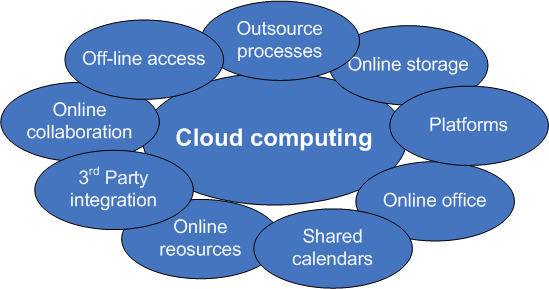Economic uncertainty has created the need for fast, responsive, highly secure, environmentally friendly and more business-driven IT infrastructures. Organizations are struggling to find a competitive advantage and are turning to the wealth of opportunities offered by technology. Eager to jump on the latest buzzwords and fashionable solutions, many have carefully investigated recent technological breakthroughs, many of which have one thing in common: the redistribution of computer roles. There is no better time than the present to reorganize the technology strategy focused on hosted solutions. The clouds are gathering …
Cloud computing has become one of the main ways to gain a foothold in today’s highly competitive marketplace. A few minutes of downtime means the loss of vital sales, while companies facing a prolonged loss of data find themselves in a situation of true collapse. Cloud computing is changing the traditional enterprise data center structure that resides in the company’s premises. Instead, the systems are moved to secure outsourced data centers in a private or public configuration. Private clouds are dedicated servers used exclusively for a single company, while public clouds have multiple companies sharing the same resources. Additional research is therefore essential to determine the cloud configuration that best meets your needs, including legal and privacy requirements.
Technology departments in all sectors face similar challenges, including budget cuts, downsizing, and increasing pressure for technology to prove useful in addressing key business issues. Many IT departments have a vague, even blind, vision of the future, focusing on day-to-day network maintenance and spending huge sums of money to keep the core systems up and running. This approach does not leave time for innovation, process improvements, or the achievement of the company’s strategic objectives. A competitive advantage can be achieved by offshoring day-to-day operations, enabling the execution of strategic initiatives.
The diverse and seemingly endless potential of cloud computing makes it a very attractive solution for some of the most important issues facing the business world. Whether it’s upgrading data entry applications, launching new collaboration portals or redesigning sophisticated messaging systems, anything is possible and happening today in the cloud. Historically, engineers of all kinds, including databases, security, applications and integrations, were needed to initiate new initiatives. Hosted solutions provide all this information without the high personnel costs. Building a partnership with a reliable IT solution provider will have a big impact on the success of your initiatives. A good hosting provider will act as a direct extension of your IT department, providing solutions to the business problems you will discover in the renewed strategic approach. Your success has a direct effect on their success.
E-mail is the main means of communication used in the workplace of the 21st century and is becoming increasingly complex on a daily basis. It is an integral component of the workflow and a great way to automate communication, increasing the flow of information to customers and employees, without wasting time, sending reports and updates. An increasing number of applications have been developed specifically to integrate with the company’s messaging system, some automatically generating invoices, others sending warnings and crucial notifications. Without expertise for each of its many components, integration opportunities may be lost, exposing companies to a loss of internal and external communication, resulting in poor customer service and lower profits.
